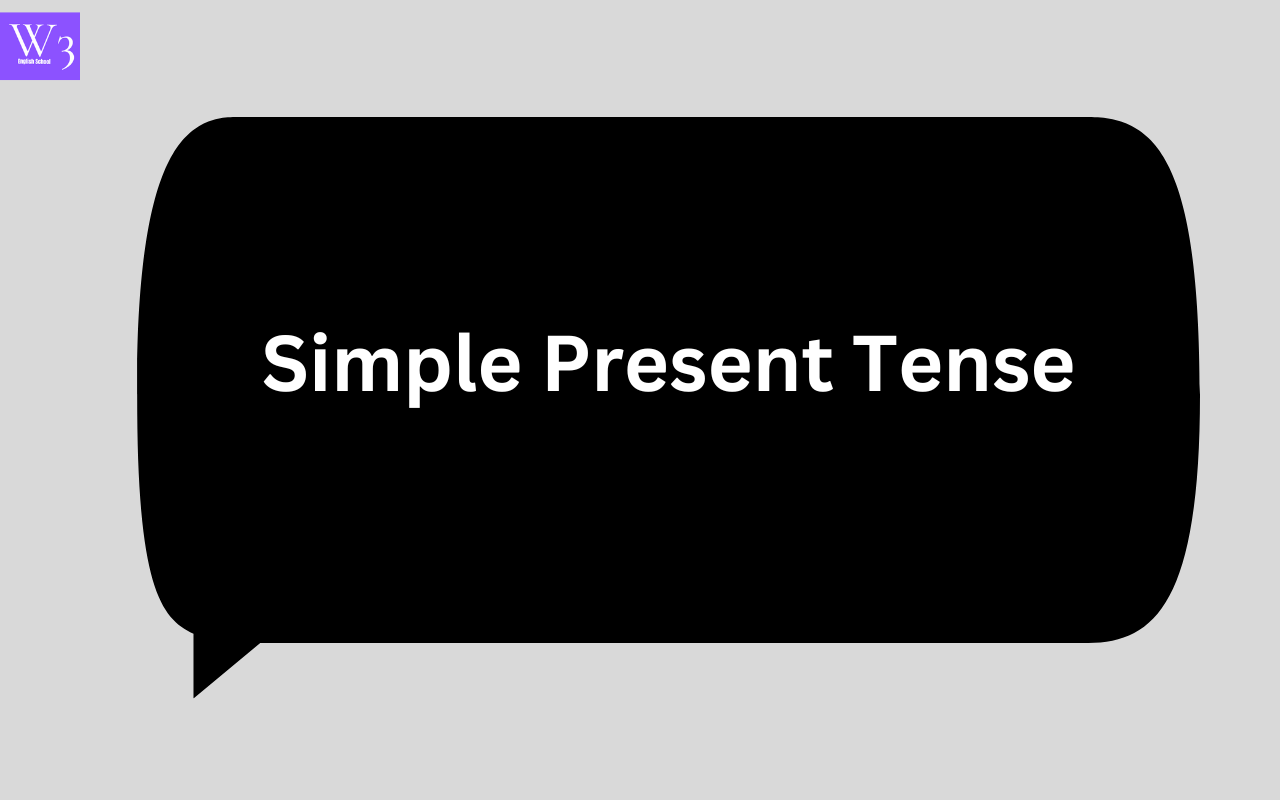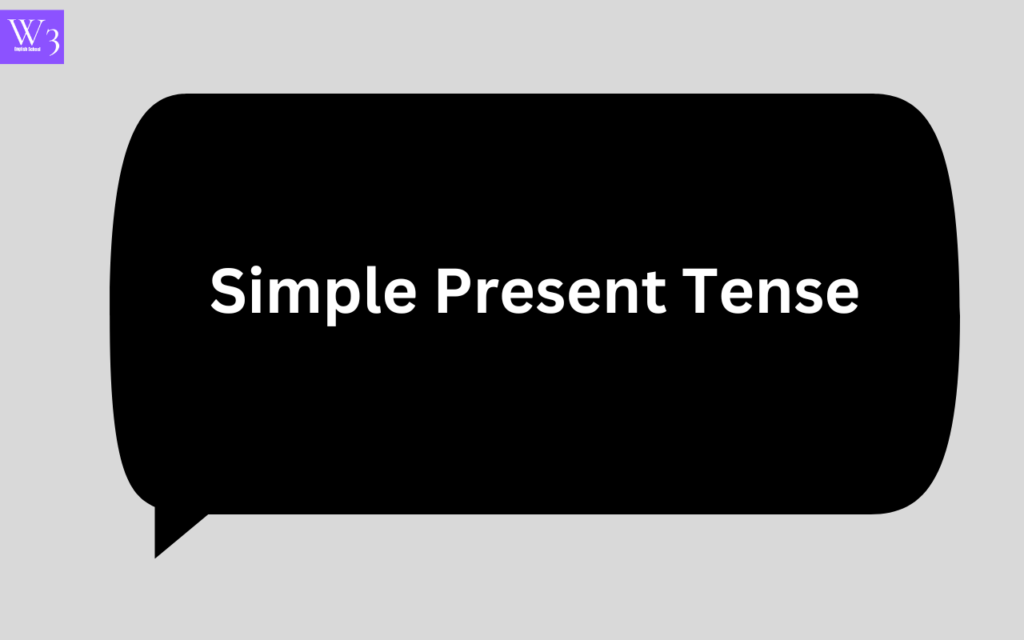simple present tense সাধারণ বর্তমান কাল is a verb tense used to describe actions that are habitual, factual, or regular occurrences, as well as general truths.. It’s also known as the present indefinite or present simple. In this article, you will learn the definition, structure, and rules of usage with examples.
সাধারণ বর্তমান কাল হল একটি ক্রিয়া কাল যা অভ্যাসগত, বাস্তবিক বা নিয়মিত ঘটনা, সেইসাথে সাধারণ সত্যকে বর্ণনা করতে ব্যবহৃত হয়। এটি বর্তমান অনির্দিষ্ট বা বর্তমান সাধারণ হিসাবেও পরিচিত। এই নিবন্ধে, আপনি উদাহরণ সহ সংজ্ঞা, গঠন এবং ব্যবহারের নিয়ম শিখবেন।
Table Of Contents
- What is the Simple Present Tense?
- Definition of Simple Present Tense
- Structure of Simple Present Tense
- Examples of Simple Present Tense
- Frequently Asked Questions on Simple Present Tense
What is simple present tense সাধারণ বর্তমান কাল?
The simple present tense is a verb tense used to describe actions that are habitual, factual, or regular occurrences, as well as general truths. It’s used to talk about things that happen regularly, facts, or states of being. It’s also known as the present indefinite or present simple.
সাধারণ বর্তমান কাল হল একটি ক্রিয়া কাল যা অভ্যাসগত, বাস্তবিক বা নিয়মিত ঘটনা, সেইসাথে সাধারণ সত্যকে বর্ণনা করতে ব্যবহৃত হয়। এটি নিয়মিত ঘটতে থাকা জিনিস, ঘটনা বা অস্তিত্বের অবস্থা সম্পর্কে কথা বলতে ব্যবহৃত হয়। এটি বর্তমান অনির্দিষ্ট বা বর্তমান সাধারণ হিসাবেও পরিচিত।
Definition of Simple Present Tense
The Simple Present Tense is a verb form in English that denotes actions, events, or situations that are regularly occurring, habitual, general facts, or timeless truths. Simple Present (Sub + V1 + s/es + object ) It is used to denote universal truths, habitual actions and work done on daily basis or at particular intervals of time. Words like every day, sometimes, always, often.
সাধারণ বর্তমান কাল ইংরেজিতে একটি ক্রিয়াপদের রূপ যা ক্রিয়া, ঘটনা বা পরিস্থিতি যা নিয়মিত ঘটছে, অভ্যাসগত, সাধারণ ঘটনা বা কালজয়ী সত্যকে বোঝায়। সাধারণ বর্তমান (Sub + V1 + s/es + object ) এটি সর্বজনীন সত্য, অভ্যাসগত ক্রিয়া এবং দৈনিক ভিত্তিতে বা নির্দিষ্ট সময়ের ব্যবধানে করা কাজ বোঝাতে ব্যবহৃত হয়। প্রতিদিনের মতো শব্দ, কখনও কখনও, সর্বদা, প্রায়শই।
Structure of Simple Present Tense
Positive : Subject + Base form of the verb (V1) +s/es + Object
Negative : Subject + Do/Does + Not + Base form of the verb (V1) +Object
Interrogative : Do/Does + Subject + Base form of the verb (V1) +Object
Examples of Simple Present Tense
Positive sentences of simple present tense সাধারণ বর্তমান কাল :
- I love to read books. ( আমি বই পড়তে ভালোবাসি )
- She plays the piano beautifully. ( সে সুন্দরভাবে পিয়ানো বাজায়। )
- They live in Kolkata. ( তারা কলকাতায় থাকেন )
- He speaks English fluently. ( তিনি সাবলীলভাবে ইংরেজি বলেন। )
- The sun rises in the east. ( সূর্য পূর্ব দিকে উঠে. )
Negative Sentences of simple present tense সাধারণ বর্তমান কাল :
- I Do Not love to read books. ( আমি বই পড়তে ভালোবাসি না। )
- She Does Not play the piano beautifully. ( সে সুন্দরভাবে পিয়ানো বাজায় না। )
- They Do Not live in Kolkata. ( তারা কলকাতায় থাকে না। )
- He Does Not speak English fluently. ( তিনি সাবলীলভাবে ইংরেজি বলতে পারেন না। )
- The sun Does Not rise in the east. (সূর্য পূর্ব দিকে উদিত হয় না। )
Interrogative Sentences of simple present tense সাধারণ বর্তমান কাল :
- Do I love to read books? ( আমি কি বই পড়তে ভালোবাসি ?)
- Does She play the piano beautifully ?( সে কি সুন্দরভাবে পিয়ানো বাজায়? )
- Do They live in Kolkata? ( তারা কি কলকাতায় থাকে? )
- Does He speak English fluently? ( তিনি কি সাবলীলভাবে ইংরেজি বলতে পারেন? )
- Does The sun rise in the east ? ( সূর্য কি পূর্ব দিকে ওঠে? )
Frequently Asked Questions on Simple Present Tense
Q1. What is the Simple Present Tense?
The simple present tense সাধারণ বর্তমান কাল tense is a verb tense used to describe actions that are habitual, factual, or regular occurrences, as well as general truths. It’s used to talk about things that happen regularly, facts, or states of being. It’s also known as the present indefinite or present simple.
Q2. Definition of Simple Present Tense
The Simple Present Tense is a verb form in English that denotes actions, events, or situations that are regularly occurring, habitual, general facts, or timeless truths. Simple Present (Sub + V1 + s/es + object ) It is used to denote universal truths, habitual actions and work done on daily basis or at particular intervals of time. Words like every day, sometimes, always, often.
Q3. Structure of Simple Present Tense
Positive : Subject + Base form of the verb (V1) +s/es + Object
Negative : Subject + Do/Does + Not + Base form of the verb (V1) +Object
Interrogative : Do/Does + Subject + Base form of the verb (V1) +Object
Q4. Examples of Simple Present Tense
Positive sentences of simple present tense সাধারণ বর্তমান কাল :
- I love to read books. ( আমি বই পড়তে ভালোবাসি )
- She plays the piano beautifully. ( সে সুন্দরভাবে পিয়ানো বাজায়। )
Negative Sentences of simple present tense সাধারণ বর্তমান কাল :
- I Do Not love to read books. ( আমি বই পড়তে ভালোবাসি না। )
- She Does Not play the piano beautifully. ( সে সুন্দরভাবে পিয়ানো বাজায় না। )
Interrogative Sentences of simple present tense সাধারণ বর্তমান কাল :
- Do I love to read books? ( আমি কি বই পড়তে ভালোবাসি ?)
- Does She play the piano beautifully ?( সে কি সুন্দরভাবে পিয়ানো বাজায়? )
Learn More please go to Google
-
Past Continuous Tense positive sentences examples in Bengali | W3EnglishSchool
Past Continuous Tense positive sentences examples in Bengali | W3EnglishSchool with our comprehensive guide. This article provides clear examples, detailed explanations, and tips for mastering Past Continuous Tense positive form.
-
Past Continuous Tense in Bengali অতীত চলমান কাল | W3EnglishSchool
Past Continuous Tense in Bengali অতীত চলমান কাল.Learn all about the Past Continuous Tense, its meaning, definition, uses, structure and rules in this article.
-
Past Indefinite Tense Negative Sentences Examples in Bengali | W3EnglishSchool
Past Indefinite Tense Negative Sentences Examples in Bengali | W3EnglishSchool with our comprehensive guide. This article provides clear examples, detailed explanations, and tips for mastering Past Indefinite Tense Negative form.









2 thoughts on “simple present tense সাধারণ বর্তমান কাল #1”
Comments are closed.